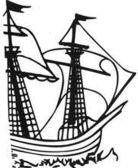Canadian Nautical Research Society book award for 2013

Churchill and Sea Power has won the Canadian Nautical Research Society's Keith Matthews Award for the Best Maritime Book Published in 2012.
The Society's announcement reads as follows:
KEITH MATTHEWS WINNER OF THE BEST BOOK PUBLISHED IN 2012 by a Canadian on any maritime subject, or by anyone on a Canadian maritime subject:
Churchill & Sea Power published by Oxford University Press, written by Christopher M. Bell.
Christopher Bell has written an excellent appraisal of Sir Winston Churchill and the Royal Navy over a period of more than fifty years. His first chapter quotes a speech Churchill made in the House of Commons in 1901 about the importance of the RN to the defence of the empire. His concluding chapter discusses Churchill and defence during his second premiership when a war weary Britain and the advent of first atomic and then nuclear weapons seemed to dictate slashing defence budget cuts and a significant reduction of a navy that would have little opportunity to play a useful part in a “come as you are” war.
Between those bookends. Churchill’s relationship with the admiralty included the Dardanelles campaign of the First World War when he was First Lord; the “ten-year” rule between the world wars when Churchill was the Chancellor of the Exchequer; the Norwegian campaign 1940 when he was again the First Lord of the Admiralty, and as prime minister, various aspects of the Battle of the Atlantic including the debate of aircraft allocation amongst other issues. All of these are topics on which individuals writing memoirs and historians have had strong, and often critical views. Stephen Roskill’s unflattering assessments have frequently been accepted without comment.
Through comprehensive and painstaking research Bell has revealed a record previously hidden from view. For example, he has compared early drafts of manuscripts with the final version in published book form, and noted that readers called for changes for compelling reasons. With respect to some of Roskill’s work, he has checked the original comment of a participant against what Roskill selected to quote, and noted the omissions. Bell has reviewed the records of some controversial decisions in which it was said that Churchill had been overbearing and forced his way, with disastrous results, and found that when all the facts were gathered, such conclusions were not always supported.
Bell concludes, “Winston Churchill understood the navy’s capabilities and its limitations better than probably any other politician of this period. The nation was fortunate that he was so frequently and prominently involved in managing its naval affairs.
In summation, some comments from the assessments of other award committee members may be useful: “Chris Bell’s book on Churchill is the obvious one for book prize -- a really substantial and well balanced piece.” And, Bell, “ represents, successfully, a generation of researchers that is able to be a little more dispassionate and hence produces better history on Churchill. Being balanced about Churchill is not easy as so many either worship or loath him. Getting back into the records and passing judgement from a neutral perspective is worthy of praise it seems to me.”

